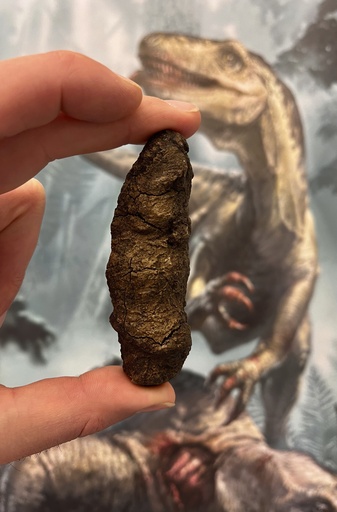NEW YORK — Utilizing ancient feces and vomit samples discovered in Poland, scientists have unveiled insights into how dinosaurs ascended to become the dominant creatures on the planet millions of years ago.
Researchers are uncertain whether the emergence of dinosaurs over a span of 30 million years was due to fortuitous circumstances, their inherent abilities, climate fluctuations, or a mixture of these factors. However, they arrived at a significant conclusion: “It was not an abrupt process,” commented co-author Martin Qvarnström from Uppsala University.
The recently released study in the journal Nature delved into hundreds of dinosaur droppings to uncover the dietary habits of these ancient beings from 200 million years ago.
Qvarnström noted that the earliest dinosaurs were opportunistic feeders, consuming a broad spectrum of food, including insects, fish, and vegetation.
As climatic conditions shifted, these creatures displayed remarkable adaptability. Herbivorous dinosaurs, for instance, had a more varied diet than their contemporaries, allowing them to easily expand their eating habits when wetter conditions led to the emergence of new plant species.
While the findings of the study were centered around Polish fossils, Qvarnström expressed a desire to compare their conclusions against fossil data from various regions worldwide.
It is not unusual for scientists to examine ancient waste to gain insights into extinct species, as noted by Emma Dunne, a paleobiologist at the University of Erlangen-Nuremberg. However, fossilized excrement can appear as unremarkable clumps or rock-like formations and are not always located near the fossils of the organisms responsible for creating them, complicating the task of associating them with their originators.
In this investigation, the researchers identified remnants of fish scales, insect fragments, and bone pieces embedded within the feces.
“They seem like a quite mundane and plain part of the ancient landscape,” remarked Dunne, who did not participate in the research. “Yet, they contain a wealth of delicate and detailed information.”


